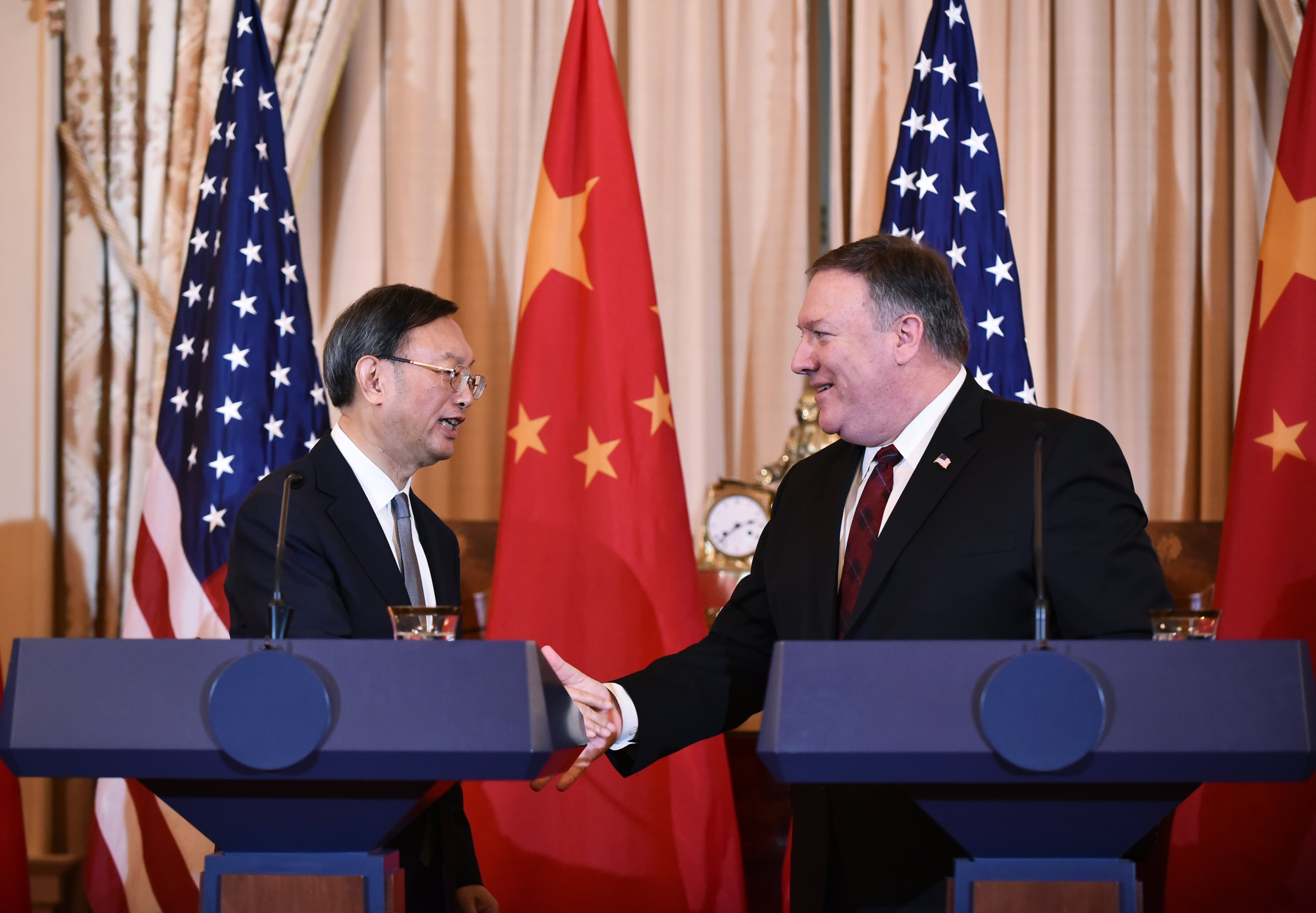
U.S. Secretary of State Mike Pompeo met China's top diplomat, Yang Jiechi, in Hawaii on Wednesday in what Beijing described as a "constructive dialogue," amid a deep deterioration of ties between strategic rivals that are the world's two top economies.
The countries have been at loggerheads over the handling of the coronavirus pandemic and China's move to impose new security legislation on Hong Kong, among the latest flare-ups in years of escalating tensions.
In the meeting, Pompeo stressed "the need for fully-reciprocal dealings between the two nations across commercial, security, and diplomatic interactions," U.S. State Department spokeswoman Morgan Ortagus said in a statement.
"He also stressed the need for full transparency and information sharing to combat the ongoing COVID-19 pandemic and prevent future outbreaks."
Beijing said the two sides agreed to continue engagement.
"Both sides fully articulated their countries' respective positions, and believe that this was a constructive dialogue. Both sides agreed to take action to implement the consensus reached by leaders of both countries," China's Xinhua news agency said.
The meeting in Honolulu started shortly after 9 a.m. (1900 GMT) and concluded at 3:50 p.m. (0150 GMT Thursday), a senior State Department official said.
As the meeting got under way, U.S. President Donald Trump signed legislation calling for sanctions against those responsible for repression of Uighur Muslims in China's Xinjiang region.
Separately, foreign ministers of the G-7 countries, including Pompeo, issued a statement calling on China not to follow through with the Hong Kong legislation.
Pompeo has been forceful in his criticism of Beijing and it was his first known contact with Yang since they discussed the coronavirus by phone on April 15. They had not met face to face since last year.
Tensions have risen also over China's neighbor North Korea. The United States and China share concerns about that country's nuclear weapons program.
Experts say U.S.-China relations have reached their lowest point in years, and in mid-May Trump, who has pursued a deal to end a damaging trade war he launched with China, went so far as to suggest he could cut ties with Beijing.
The bill Trump signed calls for sanctions on Chinese officials responsible for oppressing Uighur Muslims, including on one of Yang's colleagues on China's powerful Politburo.
Trump tempered that possibility with a signing statement saying that some of the bill's sanctions requirements might limit his constitutional authority as president to conduct diplomacy so he would regard them as advisory, not mandatory.
While Trump and his administration have stepped up rhetoric against China in the run-up to the November U.S. election, his former national security adviser, John Bolton, said on Wednesday the president sought Chinese President Xi Jinping's help to win re-election during a closed-door June 2019 meeting.
Bolton's accusations are part of a book that the U.S. government on Tuesday sued to block him from publishing, arguing it contained classified information and would compromise national security.
Trump hit back at Bolton, calling him "a liar" in an interview with the Wall Street Journal. He told Fox News in a separate interview that Bolton had broken the law by including highly classified material in the book.
Neither side outlined an agenda for the Hawaii talks, but diplomats and other sources have said the meeting was requested by China.
U.S. Trade Representative Robert Lighthizer also told a congressional hearing that Chinese officials had repeatedly affirmed their commitment to buy more U.S. goods and services under a Phase 1 trade deal signed in January and that some $10 billion in purchases had been recorded thus far.
Lighthizer also said, when asked about exports of products made by Uighurs and other Muslim groups in camps in China, that Washington would "strongly enforce" U.S. laws banning the import of goods made by forced labor.
Among his criticisms of China, Pompeo has said it could have prevented hundreds of thousands of deaths from the global coronavirus pandemic by being more transparent, and accused it of refusing to share information.
Trump has initiated a process of eliminating special U.S. treatment for Hong Kong to punish China for curbing freedoms there, but has stopped short of immediately ending privileges that have helped the territory remain a global financial center.
World - Latest - Google News
June 18, 2020 at 10:49AM
https://ift.tt/30UQPYW
Top U.S, China diplomats hold 'constructive' meeting amid strains - CNBC
World - Latest - Google News
https://ift.tt/2SeTG7d
Bagikan Berita Ini














0 Response to "Top U.S, China diplomats hold 'constructive' meeting amid strains - CNBC"
Post a Comment